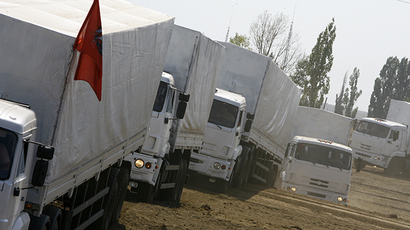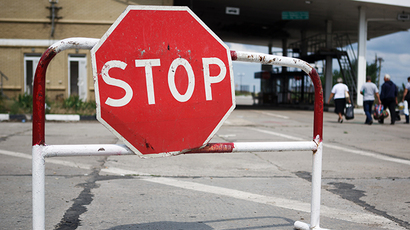Kiev guarantees safety for Russian aid convoy ‘only in areas it controls’
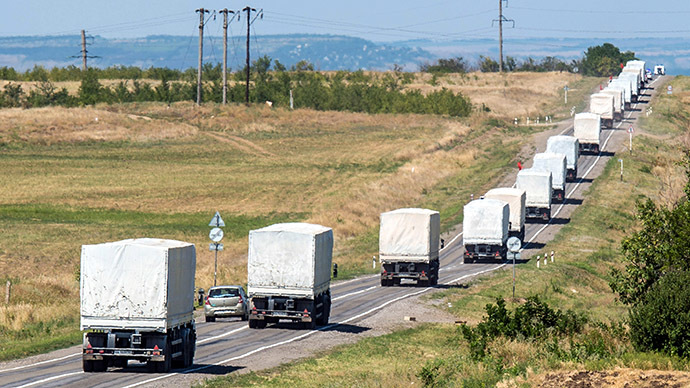
Ukraine is ready to ensure the safety of the Russian humanitarian aid convoy, but only in areas controlled by the country’s security forces, the Ukrainian Foreign Ministry said.
“For its part, Ukraine has repeatedly reaffirmed its
readiness to provide security guarantees in the area controlled
by the troops involved in the anti-terrorist operation,”
Foreign Ministry spokesman Evgeny Perebiynis said at a briefing
in Kiev.
As for the areas held by the self-defense forces, it’s the
responsibility of their leaders to provide safe passage for the
convoy, he added.
The delivery of the Russian humanitarian aid to eastern Ukraine
could start in the next couple of hours, Vitaly Churkin, Russia’s
permanent representative to the UN, said during a Security
Council meeting.
“We hope that no one will resume attempts to hamper the delivery
of humanitarian aid from Russia, and in the next couple of hours
these activities will begin,” Churkin said.
The humanitarian convoy with Russian aid for Ukraine’s
war-affected Donetsk and Lugansk regions has been stuck at the
border between the two states since August 14.
A total of 280 trucks with almost 1,800 tons of medical supplies,
food and other essential goods were unable to move on without
safety guarantees from the Ukrainian authorities.
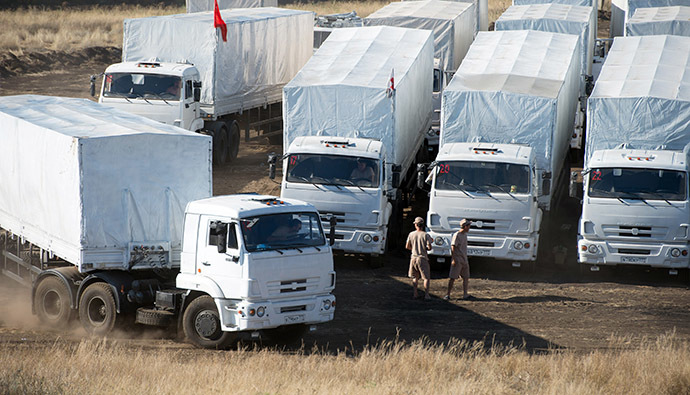
According to Perebiynis, the representatives of the ICRC have
been sent to southern Russia’s Rostov region to escort the
humanitarian aid on its way to Ukraine.
“The preliminary plan developed by the International Committee of
the Red Cross provided that each group of 30 trucks with
humanitarian aid will be accompanied by about five Red Cross
employees,” he said.
“At the same time, the Committee stands for a speedy return
of the Russian trucks to Russia” after the mission is
complete, he added.
The Ukrainian authorities plan to distribute Russian humanitarian
aid among the residents of the Lugansk region, the city of
Donetsk and the newly “liberated territories,”
Perebiynis said.
Earlier Tuesday, the Russian foreign minister talked to ICRC
chief Peter Maurer by telephone, with both sides agreeing that
the convoy’s safety must be “urgently resolved with the
Ukrainian side.”
Maurer noted that “all security arrangements concerning the
safety of the convoy and ICRC staff involved in the operation
have been made fully by the Russian side and the self-defense
forces,” the Russian Foreign Ministry said in a statement.
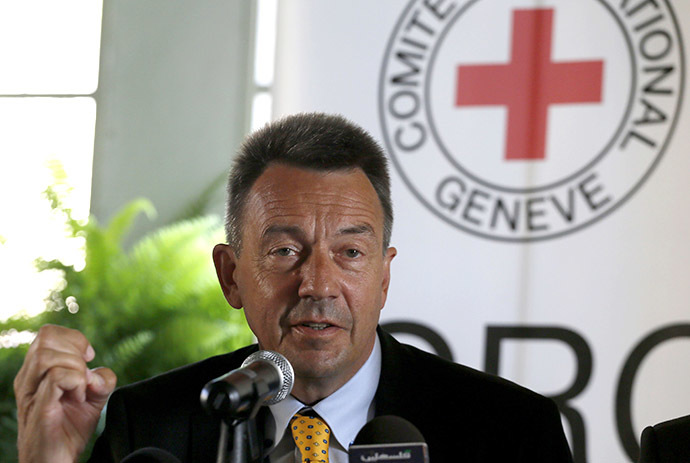
Lavrov reminded Maurer that the situation with food, water and
electricity is deteriorating on a daily basis in the
conflict-stricken areas of the Donetsk and Lugansk regions.
“The infrastructure is being destroyed; patients remain
without medication, and children are without food. Basic
necessities are lacking in many villages and towns. The rapid
delivery of Russian humanitarian aid is now more important than
ever,” Lavrov said.
In early August, Moscow proposed to the UN Security Council that
an international mission with Russian humanitarian aid, under
ICRC supervision, be sent to southeastern Ukraine in response to
the humanitarian crisis in the area.
However, the move was not welcomed by Kiev, which came up with
bizarre accusations that Moscow was using the humanitarian convoy
as a cover to deploy its troops into Ukraine.
The Ukrainian authorities agreed that the Russian cargo was
humanitarian aid only after receiving a special petition from the
Red Cross last week.
Currently, only 16 trucks from the humanitarian convoy are at the
'Donetsk' border checkpoint on the Russian side, awaiting
inspection, while the rest are still parked at a local depot to
avoid jamming the border crossing.













